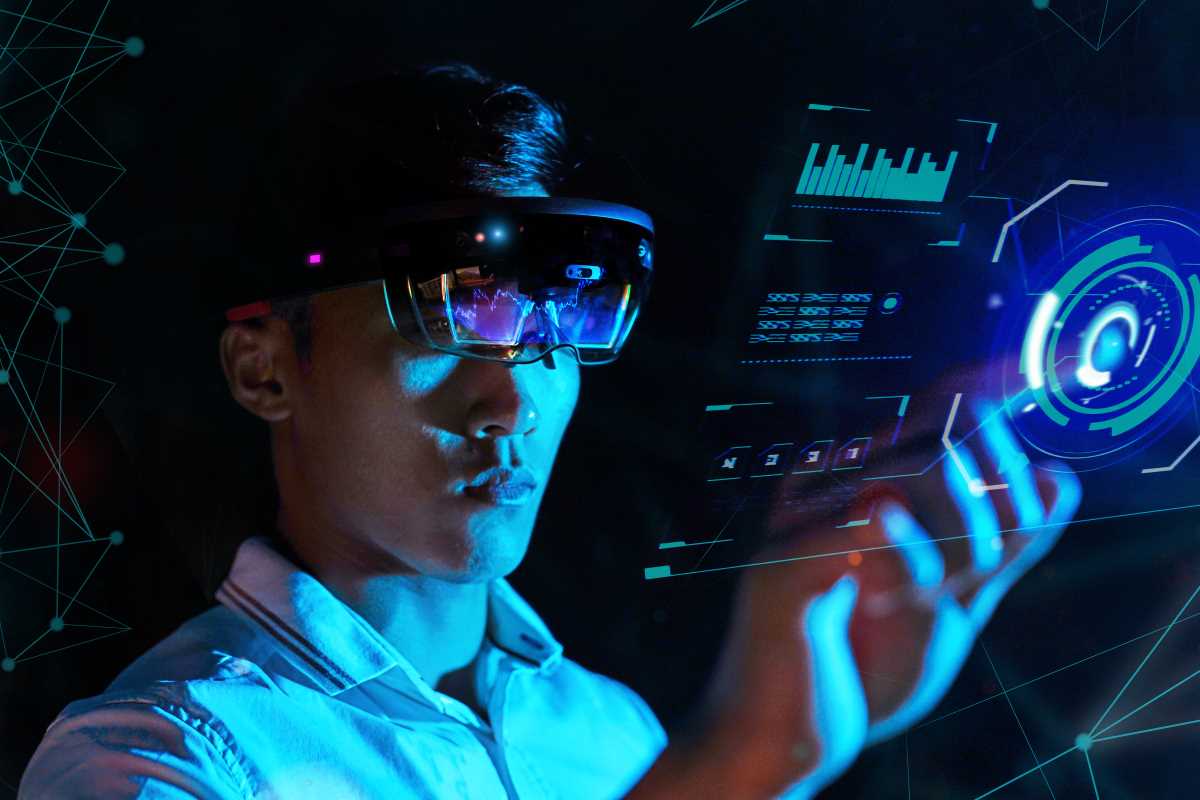Breaking into the tech industry can feel like standing at the base of a mountain, unsure of where to start climbing. Whether you're just starting your career or trying to transition into tech, one thing is clear: having hands-on experience is invaluable. But how do you gain that experience without already working in the field? Enter remote experiential learning.
Remote experiential learning offers you a way to gain valuable, real-world tech skills without needing to uproot your life or spend years in a classroom. The best part? Many programs are designed to fit around your schedule, so you can level up your career while balancing other life commitments.
Below, we’ll explore why experiential learning matters, highlight institutions that are making it accessible, and provide actionable tips to help you choose the best program to set yourself up for tech success.
What Exactly is Remote Experiential Learning?
Remote experiential learning is a way to gain practical, hands-on experience in a subject (like software development, data analytics, or design) entirely online. Instead of passively consuming information through lectures or reading textbooks, you actively engage in real-world projects. These projects are often designed to mimic what you’d do in the workplace, preparing you for the day-to-day challenges of a job in tech.
Think of it like a virtual internship, bootcamp, or project-based course that focuses on learning by doing. Whether you’re creating prototypes for an app, designing a user-friendly interface, or building a machine learning model from scratch, the emphasis is on applying your skills in a real-world context.
Unlike traditional education, remote experiential learning allows for flexibility, both in terms of how you study (part-time, full-time, or self-paced) and where you study (at home, at a café, or wherever you feel comfortable).
Why Experiential Learning is Key in Tech
The tech industry moves fast. Employers aren’t just looking for employees with degrees; they want candidates who can hit the ground running. That’s where experiential learning becomes crucial. Here’s why:
1. Building Practical, Job-Ready Skills
While theory is important, tech jobs often require you to solve real problems. Experiential learning goes beyond tutorials and textbooks by helping you acquire the practical skills you’ll actually use in a work setting. Whether it’s using SQL to extract data, coding in Python, or creating user-friendly websites, programs that focus on experience allow you to learn by doing.
2. Developing Portfolios That Speak for You
Many tech roles require you to submit a portfolio alongside your résumé. Without a strong set of projects to showcase, even the most promising candidates may struggle to stand out. Experiential learning programs often result in a selection of portfolio-ready work, like apps, data visualizations, or user-centered designs, that demonstrate your skills to future employers.
3. Networking With the Right People
Learning through experience doesn’t just help you develop technical skills; it also provides invaluable networking opportunities. Many remote programs connect students with mentors or industry professionals who can offer guidance, feedback, and even career opportunities. Building those relationships can make all the difference when looking for your first (or next) job.
4. Boosting Confidence
It’s one thing to know a concept in theory; it’s another to put it into practice. When you solve real problems, you build the confidence to tackle the challenges you’ll face on the job. Experiential learning is like a proving ground, giving you a space to test your abilities before stepping into the workforce.
5. Keeping Pace With Industry Trends
Tech evolves rapidly, and what was cutting-edge two years ago might be outdated today. Experiential learning programs often partner with industry leaders to ensure they stay aligned with what’s in demand. When you participate in these programs, you’re not just preparing for the present; you’re equipping yourself for the future.
Top Institutions Offering Remote Experiential Learning in Tech Fields
Whether you’re interested in coding, data analytics, design, or something else, the following institutions excel in providing remote experiential learning opportunities tailored to the tech world.
1. General Assembly
General Assembly is renowned for its hands-on, project-based courses in software engineering, UX design, and data analytics. Their programs are structured to fit a variety of schedules, with options for full-time, part-time, or flex learning.
- Best For: Beginners and career changers.
- What Sets Them Apart: General Assembly collaborates with leading tech companies to ensure their curriculum stays relevant. They also include real-world projects in their courses, equipping you with a professional portfolio by the time you graduate.
- Perks: Many of their courses come with career coaching, interview prep, and networking opportunities.
2. Springboard
Springboard offers immersive programs where students work through real-world projects under the guidance of an industry mentor. Their tracks include data science, UX/UI design, and software engineering.
- Best For: Learners who thrive with mentorship and accountability.
- What Sets Them Apart: A job guarantee. If you don’t secure a qualifying position within six months of completing a career-focused program, they refund your tuition.
- Capstone Projects: Create complex, real-world projects to show off your expertise.
3. Coursera (University Partnerships)
Coursera provides access to courses and certificates developed by top universities and tech firms. Many of these programs feature hands-on projects, such as Google’s IT Support Professional Certificate.
- Best For: Learners who want certifications backed by respected institutions.
- What Sets Them Apart: Programs like “Professional Certificates” build both theoretical knowledge and practical expertise.
- Insider Tip: Look for options labeled as “Guided Projects” for the most immersive experience.
4. CareerFoundry
CareerFoundry is an excellent choice for aspiring designers, data analysts, and programmers who value one-on-one feedback. Their programs ensure personalized guidance through mentors and tutors.
- Best For: Beginners seeking step-by-step assistance in developing a professional portfolio.
- What Sets Them Apart: CareerFoundry’s focus is on creating job-ready candidates. You’ll leave with tailored career resources and samples of your work to showcase to potential employers.
5. edX MicroMasters and Boot Camps
edX offers everything from short-term bootcamps to MicroMasters programs that feature hands-on projects and assessments. The platform collaborates with universities and major employers to create practical, goal-driven courses.
- Best For: Self-starters who want the flexibility to work at their own pace.
- What Sets Them Apart: Programs often tie into graduate credits or professional certifications, giving learners an edge in further education or the job market.
6. Pathstream
Pathstream works with universities and employers like Facebook, Salesforce, and Tableau to design programs aimed at job readiness. Their courses are highly practical, focusing on tools and platforms widely used in tech roles.
- Best For: Those who want to learn industry-standard tech tools.
- What Sets Them Apart: Partnerships with tech companies give students direct exposure to the software and platforms they’ll likely use in their careers.
7. Thinkful
Thinkful boasts programs in software engineering, data science, and digital marketing that pair students with personal mentors for one-on-one guidance. Their job placement rate is particularly strong.
- Best For: Career-driven learners motivated to land a job immediately.
- What Sets Them Apart: A tuition refund guarantee for anyone who doesn’t receive a job offer within six months of graduating.
8. Skillcrush
Skillcrush caters to tech newcomers in areas like web design, front-end development, and digital marketing. Their programs are designed to be approachable for people with no prior experience.
- Best For: Absolute beginners hesitant about entering the tech world.
- What Sets Them Apart: A welcoming learning environment focused on accessibility and confidence-building.
9. Udacity Nanodegrees
Udacity’s nanodegree programs focus on tech fields like AI, cloud computing, and programming. Students complete projects and receive feedback from industry professionals.
- Best For: Specific skill-building (e.g., learning Python or mastering data analysis).
- What Sets Them Apart: Projects graded by professionals ensure practical understanding.
How to Choose the Right Program for You
Selecting the right program is just as important as completing it. With so many options, how do you decide? Follow these steps:
1. Define Your Career Goals
Are you set on becoming a software developer, visual designer, or data scientist? Research programs that specialize in the field you’re aiming to enter. Certain providers focus on specific careers, offering tailored advice and projects to match.
2. Know Your Learning Style
If you’re independent and self-motivated, self-paced courses might be ideal. Prefer structured guidance? Look for programs with mentorship, live classes, or career coaching.
3. Assess the Cost
Remote experiential learning programs vary widely in price. Some are highly affordable, like Coursera, while others offer in-depth career services and industry connections for a premium. Set your budget accordingly.
4. Look for Job Guarantees
Many programs, like Springboard and Thinkful, offer a job guarantee or payment plans tied to employment. If financial security is a concern, this can be a dealbreaker.
5. Check Real Reviews
Student testimonials and reviews reveal a lot about a program’s value. Look for comments on project quality, career outcomes, and available support.
6. Evaluate Post-Graduation Resources
Does the program help set you up for interviews? Will it connect you to a hiring network? A strong career-support system can be a game-changer.
Whether you're launching a new career or leveling up your existing one, you don’t have to go it alone. Explore these programs, start building your skills, and take that first step toward creating a career in tech. The future is in your hands. Now’s the time to make your move.







